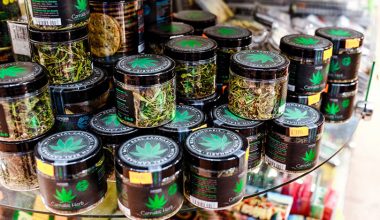A majority of Americans said they wouldn’t have an issue voting for someone who occasionally smokes marijuana, according to a new poll.
The YouGov survey, which involved interviews with 4,096 adults, comes about a week after a U.S. Senate candidate made waves after releasing a campaign ad where he smokes a cannabis blunt while discussing the racially disparate harms of prohibition.
It found that 58 percent of Americans would be “willing” to vote for a candidate who they agree with on most issues “who occasionally smokes marijuana in their free time.” Twenty-one percent said they wouldn’t be willing to cast that vote.
58% of Americans would be willing to vote for a candidate they agree with on most issues who occasionally smokes marijuana in their free time
Would – Wouldn't
U.S. adults: 58%-21%
Republicans: 47%-34%
Democrats: 68%-15%https://t.co/bDUZJ47c9Qhttps://t.co/OPLTMEpgHI pic.twitter.com/Vo3pb87XQa— YouGov America (@YouGovAmerica) January 27, 2022
Democrats were more likely to be fine with a casual cannabis toker running for office, with 68 percent saying they’d be open to voting for someone who partakes, compared to 15 percent who said they wouldn’t. Nearly half of Republicans (47 percent) said they’d be willing to make that vote for a marijuana consumer if they align on most issues.
It’s another sign of the normalization of cannabis as more states move to legalize for medical and adult use.
A 2020 Gallup survey also demonstrated the growing acceptance of marijuana, with respondents finding cannabis consumption to be more morally acceptable than gay relationships, medical testing of animals, the death penalty and abortion
While Democrat Gary Chambers’s recent ad showing him openly smoking made national headlines, he’s not the first to be public about cannabis consumption while seeking office.
Anthony Clark, an Illinois candidate who ran an unsuccessful primary challenge against a Democratic congressional incumbent in 2020, also smoked marijuana in a campaign ad while discussing his personal experience with cannabis and the need for federal reform. He also hosted what he called the “first-ever congressional weed party” in a campaign video.
Also that year, a Democratic candidate for a House seat to represent Oregon frequently discussed consuming and cultivating cannabis herself.
A sitting member of Congress has never publicly smoked marijuana, but several lawmakers have visited marijuana farms, companies and state-legal dispensaries. Rep. James Comer (R-KY) brought CBD oil products he uses to a committee hearing in 2019.
Washington State Gov. Jay Inslee (D) said in 2019 that while he doesn’t smoke marijuana, “I do grow it legally,” but a spokesperson later clarified that he was broadly referring to legal cultivation in the state.
It’s not especially surprising that most Americans would be comfortable voting for someone who uses marijuana considering that, at this point, a strong majority of the population believes that cannabis should be legalized, according to numerous polls.
Even a recent survey funded by the prohibitionist group Smart Approaches to Marijuana (SAM) found that a large majority of Americans think cannabis should be legal for either medical or recreational purposes.
Despite that support, President Joe Biden has so far declined to take any meaningful action on marijuana reform since taking office last year. And a separate YouGov poll released this month shows that Americans are not optimistic that he will move to make good on his decriminalization campaign promise in 2022.
Photo courtesy of Martin Alonso.
The post Majority Of Americans Say They’d Vote For A Politician Who Smokes Marijuana, Poll Finds appeared first on Marijuana Moment.
Medical Disclaimer:
The information provided in these blog posts is intended for general informational and educational purposes only. It is not a substitute for professional medical advice, diagnosis, or treatment. Always seek the advice of your physician or other qualified healthcare provider with any questions you may have regarding a medical condition. The use of any information provided in these blog posts is solely at your own risk. The authors and the website do not recommend or endorse any specific products, treatments, or procedures mentioned. Reliance on any information in these blog posts is solely at your own discretion.






